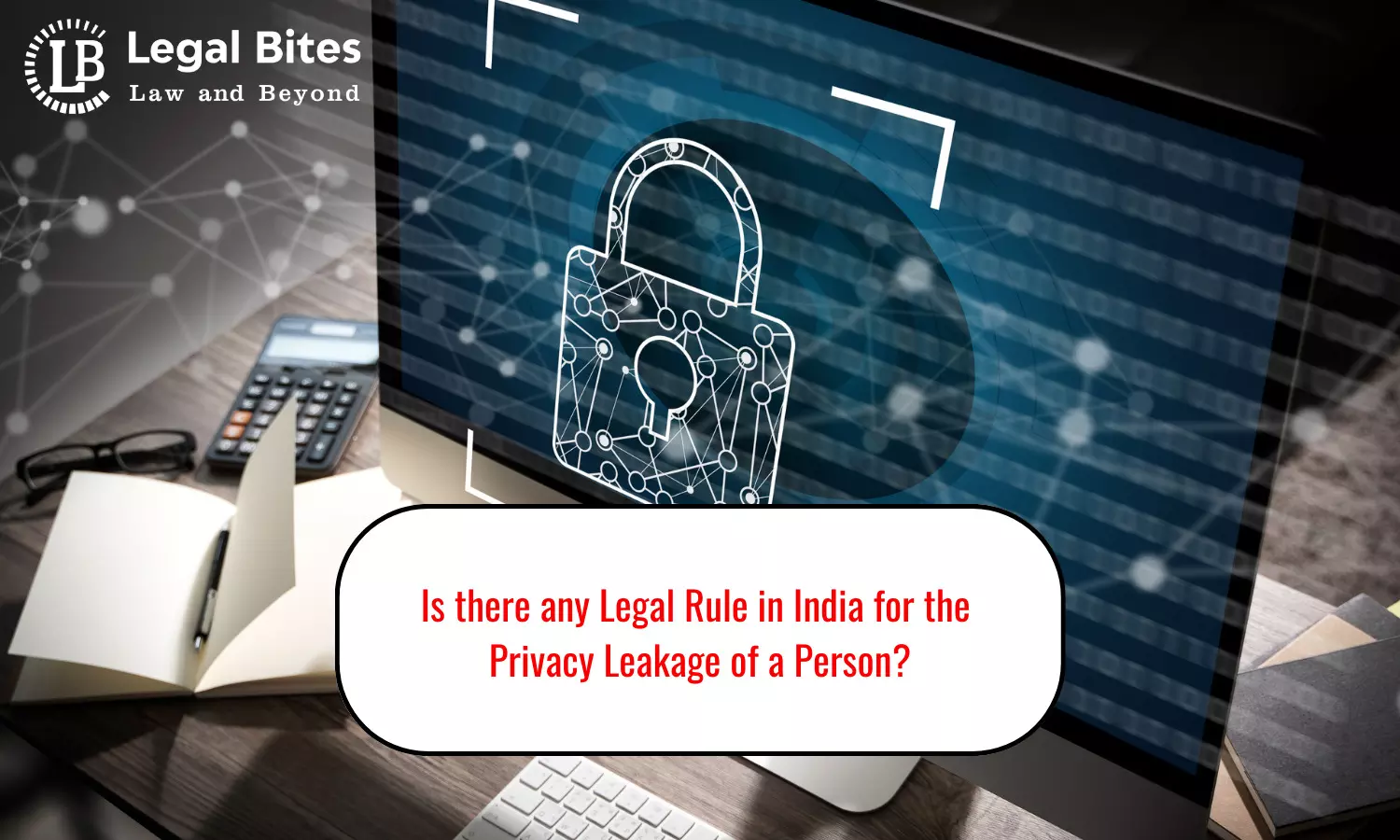Is there any Legal Rule in India for the Privacy Leakage of a Person?
The article 'Is there any legal rule in India for the privacy leakage of a person?' makes the readers aware of the laws enacted to protect an individual's privacy

The article 'Is there any legal rule in India for the privacy leakage of a person?' makes the readers aware of the laws enacted to protect an individual's privacy.
Introduction: Privacy Leakage
Privacy Leakage refers to the unauthorized disclosure or access to personal information that an individual wishes to keep private. This can occur through a variety of means, including data breaches, hacking, social engineering, and even unintentional sharing of information.
The consequences of privacy leakage can be severe, ranging from identity theft to embarrassment, loss of reputation, and even physical harm. It's essential to take steps to protect your personal information and minimize the risk of privacy leakage.
Here are some tips to protect your privacy:
- Use strong, unique passwords for each online account, and consider using a password manager to keep track of them.
- Enable two-factor authentication on all accounts that offer it.
- Be wary of suspicious emails or messages and don't click on links or download attachments unless you're sure they're safe.
- Limit the amount of personal information you share online, and review your privacy settings on social media and other online services regularly.
- Use encryption to protect sensitive data, such as financial information, and use a virtual private network (VPN) when accessing public Wi-Fi networks.
- Be mindful of what you share in public places, such as conversations on the phone or in-person, and take steps to protect your physical documents.
By following these tips, you can help reduce the risk of privacy leakage and protect your personal information from unauthorized access.
Legal Rules in India for Privacy Leakage of a Person
Yes, there are legal rules in India to protect the privacy of individuals, including provisions for addressing privacy breaches. The main legislation governing privacy in India is the Information Technology (Reasonable Security Practices and Procedures and Sensitive Personal Data or Information) Rules, 2011, which is a part of the Information Technology Act, 2000.
In addition to this, India also has a constitutional right to privacy, which has been recognized by the Supreme Court of India through various case laws.
Under these rules, organizations that handle sensitive personal data are required to implement reasonable security practices and procedures to protect the data from unauthorized access, use, disclosure, disruption, modification or destruction. In case of a breach of this security, the organization is required to notify the affected individuals and the relevant authorities as soon as possible.
Ratan Tata v. Union of India (2014): This case involved the leakage of corporate communications between the Tata Group and the government. The Supreme Court of India held that the right to privacy extends to corporate communications, and individuals and companies have the right to protect their confidential and sensitive information.
Selvi v. State of Karnataka (2010): In this case, the Supreme Court of India held that the use of narcoanalysis, polygraph tests, and brain mapping violates an individual's right to privacy and dignity, and is therefore unconstitutional.
These cases have contributed significantly to the development of privacy laws in India and have set important precedents for protecting individuals' privacy rights.
Therefore, if an individual's privacy has been breached in India, they have legal options to seek redressal and compensation, including filing a complaint with the relevant authorities or approaching the courts.
Important Links
Law Library: Notes and Study Material for LLB, LLM, Judiciary, and Entrance Exams

